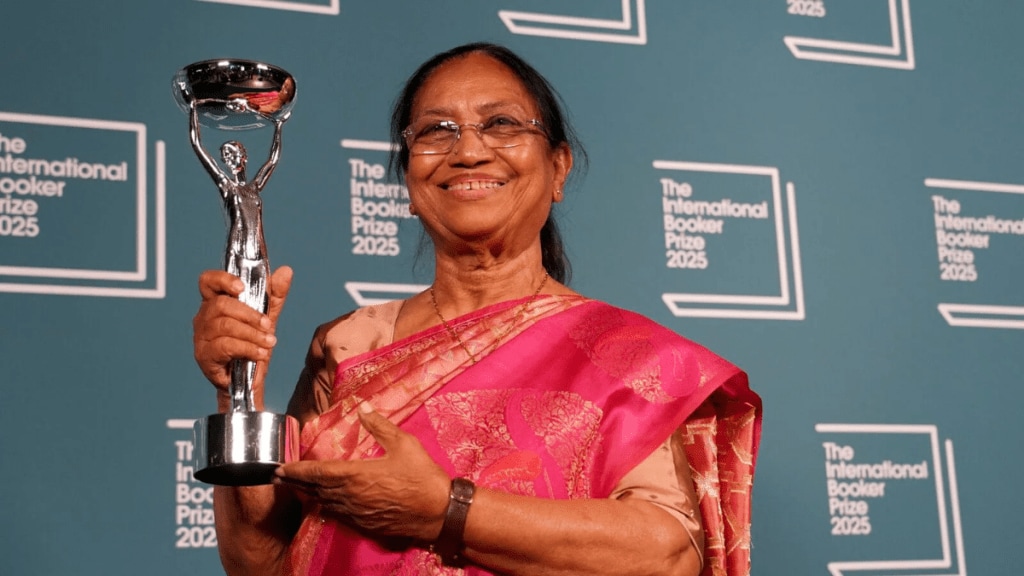When Banu Mushtaq said in her acceptance speech after winning the International Booker Prize 2025 for her book Heart Lamp, “I accept this award not as an individual, but as a voice in chorus with so many others”, it was an eloquent victory bugle for womanhood.
A lawyer by profession, Mushtaq (77) has been an advocate of the daily struggles and resilience of women she observed and recorded over a span of 30 years through her writings. Her own life is one of them. Defying a conservative, patriarchal family and even leaving her in-laws’ house to take up a profession, Mushtaq has been a fierce voice for women rights as a social activist, writer and lawyer.
From not knowing what to write about when she wanted to take up writing, in a language she chose (Kannada) and was not born into, Mushtaq has come a long way when she said: “This (award) is an affirmation that we as individuals and as a global community can thrive when we embrace diversity, celebrate our differences and uplift one another. Together, we create a world where every voice is heard, every story matters and every person belongs.”
Given away on Tuesday night at the Tate Modern in London, the International Booker Prize is awarded annually to a work of fiction or collection of short stories translated into English, with a £50,000 prize shared equally between the author and translator. Compiled and translated by Deepa Bhasthi, Heart Lamp is a collection of 12 Kannada short stories written in the Nineties. Shortlisted among six titles, Mushtaq’s work appealed to the judges for its “witty, vivid, colloquial, moving and excoriating” style of capturing portraits of family and community tensions. Commenting on the book, the judges said, “Heart Lamp should be read by men and women all over the world. The book speaks to our times, and to the ways in which many are silenced.” It is the second Indian book to win the award, after Geetanjali Shree and translator Daisy Rockwell’s win for Tomb of Sand in 2022.
Talking about the Booker Prize nomination, Mushtaq told FE: “It was unexpected. I was imagining the Nobel Prize, not the International Booker Prize (laughs).” Translator Bhashti added: “What a beautiful win this is for my beautiful language.”
Describing her writings “about women and how religion, society and politics demand unquestioning obedience from them, and in doing so, inflict inhumane cruelty upon them, turning them into mere subordinates”, Mushtaq took to the pen in 1974 with a short story published in Kannada magazine Prajamata. So far she has to her credit six collections of short stories, two novels, one collection of poems and two collections of essays. Recently 50 of her stories were compiled into a collection titled Haseena and Other Stories.
Haseena was also adapted into a Kannada film, Hasina, which won three National Film Awards, including Best Film on Family Welfare, in 2004. “This book (Heart Lamp) is my love letter to the idea that no story is local or small. In a world that often tries to divide us, literature remains one of the lost sacred spaces where we can live inside each others minds, if only for a few pages,” said Mushtaq.
Karnataka chief minister Siddaramaiah reacted to Mushtaq’s win by saying the victory had raised the flag of Kannada’s greatness. “Heartiest congratulations to the proud Kannada writer Banu Mushtaq for winning the International Booker Prize for Literature. This is a time to celebrate Kannada, Kannadigas and Karnataka,” Siddaramaiah posted on X.

